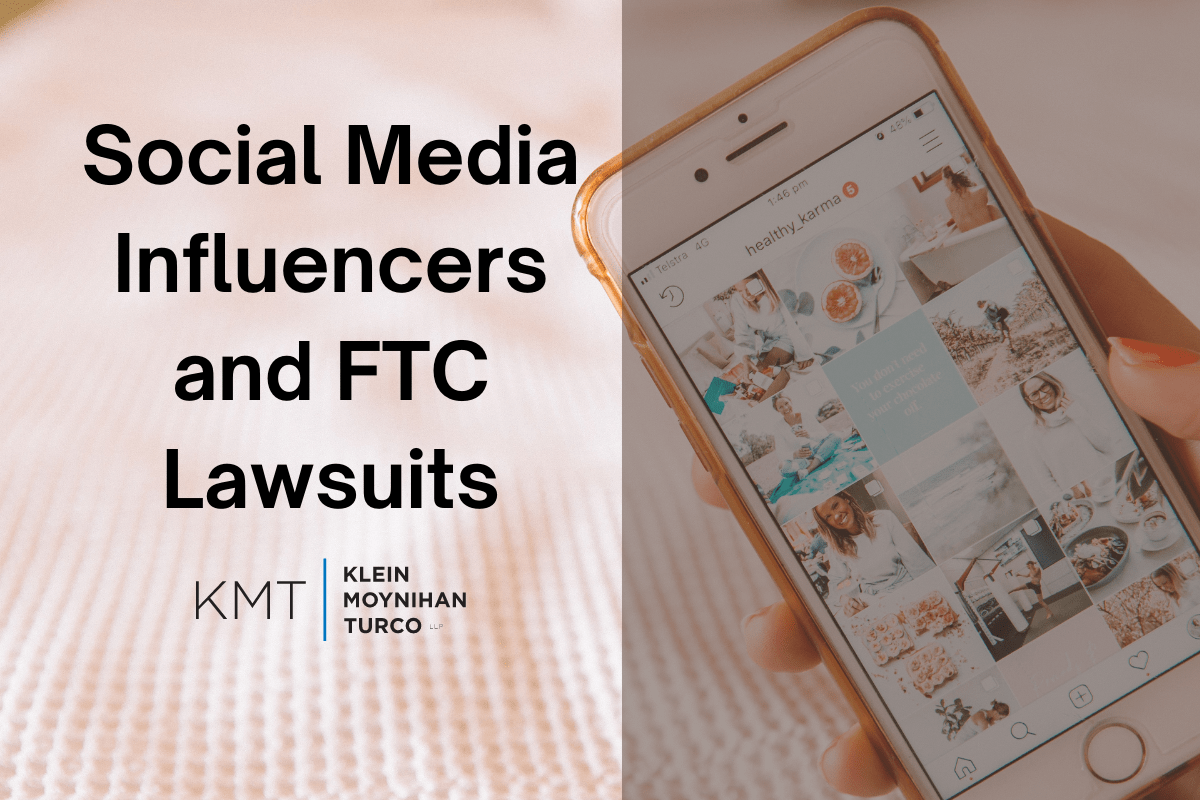Social media websites have received an increase in user traffic due to the Covid-19 pandemic. One tried and true way to advertise to users on social media is to get the endorsement of a celebrity or social media “influencer.” Superficially, the process is easy – businesses pay influencers to post endorsements of their goods or services across the influencers’ social media accounts. However, when done incorrectly, businesses and influencers can become the subject of marketing investigations initiated by the Federal Trade Commission (“FTC”). Those investigations can lead to FTC lawsuits that can result in reputational harm and significant fines.
What are Influencer Marketing Best Practices?
FTC Guidelines
In 2019, the FTC released “Disclosures 101 for Social Media Influencers” (the “Guide”) to instruct businesses and influencers on how to publish social media advertising in compliance with FTC guidelines. Influencers that post endorsements on social media must make it clear and obvious in situations where a “material connection” exists with their business clients. A “material connection” to a business is defined as any personal, family, employment or financial relationship. Please note that a financial relationship includes receiving free or discounted products. If a material connection exists, influencers must disclose (in a prominent position within the given post, video or photo) that a relationship exists by using terms such as, “advertisement,” “ad,” and “sponsored.”
Providing the most up-to-date counsel
on all things data security, privacy and Internet law.
Is a NY CCPA Law Coming Soon?
CCPA Regulations Updated, Again
App Law and Future Changes to iOS Privacy
Avoiding FTC Lawsuits
Beyond referencing the Guide, it is wise for businesses to: 1) have a written social media marketing policy in place; 2) monitor what endorsers and influencers are doing on their behalf; and 3) enter into influencer marketing agreements with each of their subject influencers. Having a written social media marketing policy in place will educate employees who handle social media accounts and help ensure that FTC guidelines are closely followed. Historically, FTC lawsuits have been brought mainly against businesses, and influencers have avoided regulatory attention, with a few exceptions. As such, businesses should monitor influencer endorsements and take prompt corrective steps if and when violations have been identified. In addition, it is strongly recommended that businesses enter into marketing agreements with influencers to document everything from compensation, to content and placement of disclosures in social media posts. Getting on the same page as influencers at the outset of each relationship will help prevent future FTC investigations and related lawsuits.
Given the nuances associated with influencer advertising, businesses and their social media influencers should work closely with knowledgeable counsel before launching any online advertising campaign.
If you are commencing an influencer advertising campaign, or if you are facing an FTC investigation or lawsuit, please email us at info@kleinmoynihan.com or call us at (212) 246-0900.
The material contained herein is provided for informational purposes only and is not legal advice, nor is it a substitute for obtaining legal advice from an attorney. Each situation is unique, and you should not act or rely on any information contained herein without seeking the advice of an experienced attorney.
Attorney Advertising
Photo by Maddi Bazzocco on Unsplash
Similar Blog Posts:
Social Media Influencer Marketing and FTC Enforcement
SEC Issues Warning to Social Media Influencers Endorsing Cryptocurrencies
University of Phoenix Settles FTC Deceptive Advertising Law Allegations




